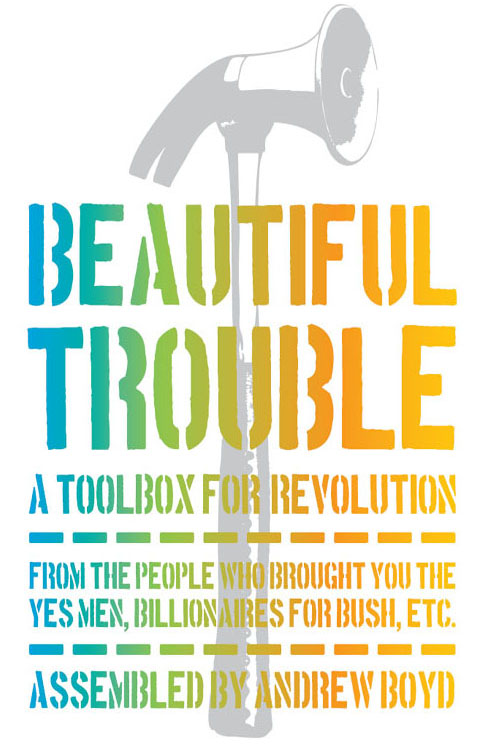Peter Sloterdijk: Critique Of Cynical Reason (1983/1988)
Filed under book | Tags: · critique, cynicism, enlightenment, history, ideology, logic, phenomenology, philosophy, politics, theory, weimar republic

In 1983, two centuries after the publication of Kant’s Critique of Pure Reason, another philosophical treatise—polemical in nature, with a title that consciously and disrespectfully alludes to the earlier work—appeared in West Germany. Peter Sloterdijk’s Critique of Cynical Reason stirred both critical acclaim and consternation and attracted a wide readership, especially among those who had come of age in the 1960’s. Sloterdijk’s finds cynicism the dominant mode in contemporary culture, in personal institutional settings; his book is less a history of the impulse than an investigation of its role in the postmodern 1970s and 1980s, among those whose earlier hopes for social change had crumbled and faded away. Sloterdijk thus brings into cultural and political discourse an issue which, though central to the mood of a generation, has remained submerged throughout the current debate about modernity and postmodernity.
With Adorno and Horkeimer’s Dialectic of Enlightenment as his primary jumping-off point, Sloterdijk also draws upon, and contends with, the poststructuralist concepts of Deleuze and Guattari. He defines cynicism as enlightened false consciousness—a sensibility “well off and miserable at the same time,” able to function in the workaday world yet assailed by doubt and paralysis; and, as counterstrategy, proposes the cynicism of antiquity—the sensuality and loud, satiric laughter of Diogenes. Above all, Sloterdijk is determined to resist the amnesia inherent in cynicism. The twentieth-century German historical experience lies behind his work, which closes with a brilliant essay on the Weimar Republic—the fourteen years between a lost war and Hitler’s ascent to power, and a time when the cynical mode first achieved cultural dominance.
Originally published as Kritik der zynischen Vernunft, 2 vols, 1983 by Suhrkamp Verlag, Frankfurt am Main
Translated by Michael Eldred
Foreword by Andreas Huyssen
Publisher University of Minnesota Press, 1988
Volume 40 of Theory and History of Literature
ISBN 0816615861, 9780816615865
600 pages
wikipedia
publisher
google books
Continent. journal, No. 1-7 (2011-2012)
Filed under journal | Tags: · art, culture, film, media studies, philosophy, poetry, politics, sound recording, theory
Continent. maps a topology of unstable confluences and ranges across new thinking, traversing interstices and alternate directions in culture, theory, politics and art.
Continent. exists as a platform for thinking through media. text, image, video, sound and new forms of publishing online are presented as reflections on and challenges to contemporary conditions in politics, media studies, art, film and philosophical thought.
Contributors to issue 2.3: François Laruelle, Andy Weir, Henrik Lübker, Berit Soli-Holt & April Vannini & Jeremy Fernando, Andrea Fraser, Sean Gurd, Paul Amitai, Sasha Ross, Thierry Geoffroy.
Contributors to issue 2.2: Vilém Flusser, Bonnie Jones, Eugene Thacker, Gary J. Shipley and Nicola Masciandaro, Vincent W.J. van Gerven Oei, Sean Joseph Patrick Carney, The Editors of Speculations & continent., Ishac Bertran, Duane Rousselle, A. Staley Groves.
Editors: Jamie Allen, Paul Boshears, Nico Jenkins
Creative Commons Attribution 3.0 License
ISSN 2159-9920
Download issue 2.3 (single PDF)
Download issue 2.2 (single PDF)
View issue 2.3 (HTML and PDF articles)
View issue 2.2 (HTML and PDF articles)
View back issues (HTML and PDF articles)
Andrew Boyd (ed.): Beautiful Trouble: A Toolbox for Revolution (2012)
Filed under book | Tags: · activism, art, debt, hacking, occupy movement, politics, protest, revolution, self-organization, social movements, tactical media, theory

“From Cairo to cyberspace, from Main Street to Wall Street, today’s social movements have a creative new edge that’s blurring the boundaries between artist and activist, hacker and dreamer. But the principles that make for successful creative action rarely get hashed out or written down.
Until now.
Beautiful Trouble brings together ten grassroots groups and dozens of seasoned artists and activists from around the world to distill their best practices into a toolbox for creative action. Among the groups included are Agit-Pop/The Other 98%, The Yes Men/Yes Labs, Code Pink, SmartMeme, The Ruckus Society, Beyond the Choir, The Center for Artistic Activism, Waging Nonviolence, Alliance of Community Trainers and Nonviolence International.”
Contributors include Rae Abileah, Ryan Acuff, Celia Alario, Phil Aroneanu, Peter Barnes, Jesse Barron, Andy Bichlbaum, Nadine Bloch, Kathryn Blume, L.M. Bogad, Josh Bolotsky, Mike Bonanno, Andrew Boyd, Kevin Buckland, Margaret Campbell, Doyle Canning, Samantha Corbin, Yutaka Dirks, Steve Duncombe, Mark Engler, Simon Enoch, Jodie Evans, John Ewing, Brian Fairbanks, Bryan Farrell, Janice Fine, Lisa Fithian, Cristian Fleming, Elisabeth Ginsberg, Stan Goff, Arun Gupta, Silas Harrebye, Judith Helfand, Daniel Hunter, Sarah Jaffe, John Jordan, Dmytri Kleiner, Sally Kohn, Steve Lambert, Anna Lee, Stephen Lerner, Zack Malitz, Nancy Mancias, Duncan Meisel, Matt Meyer, Dave Oswald Mitchell, Tracey Mitchell, George Monbiot, Brad Newsham, Gaby Pacheco, Mark Read, Patrick Reinsborough, Simon Roel, Joshua Kahn Russell, Leonidas Martin Saura, Levana Saxon, Maxine Schoefer-Wulf, Nathan Schneider, Kristen Ess Schurr, John Sellers, Rajni Shah, Brooke Singer, Matt Skomarovsky, Andrew Slack, Phillip Smith, Jonathan Matthew Smucker, Starhawk, Eric Stoner, Jeremy Varon, Virginia Vitzthum, Harsha Walia, Jefferey Webber and the Coalition of Immokalee Workers.
Assembled with Dave Oswald Mitchell
Publisher OR Books, New York/London, June 2012
Creative Commons Attribution-NonCommercial-ShareAlike 3.0 Unported License
ISBN 9781935928577
474 pages
Book website
Kickstarter page
Editor
Publisher
PDF (updated on 2024-2-18)
EPUB (added on 2024-2-18)
HTML

